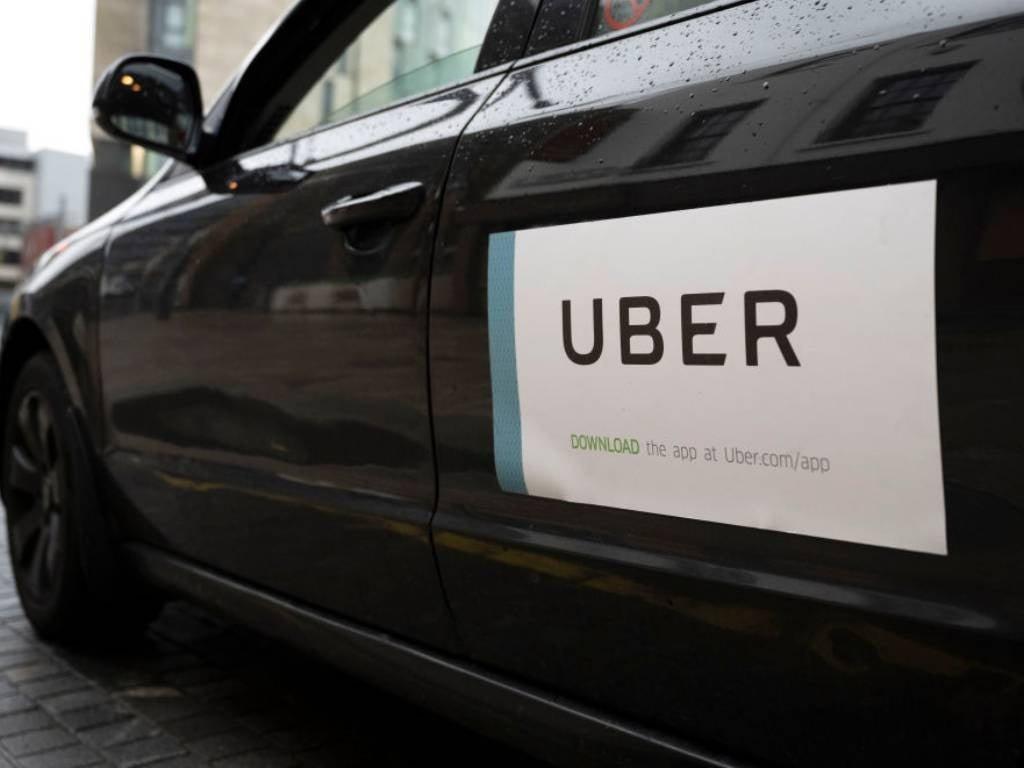
Africa-Press – South-Africa. A Johannesburg resident, who uses Uber, says she has witnessed several incidents where meter taxi drivers mistreated and threatened e-hailing drivers, forcing them to pay fines of R1 000 for picking up and dropping people off at Park Station.
Anathi Ndevu, 23, who lives in Sandton, takes a bus from the Gautrain station in Sandton to Park Station, Johannesburg, and then on to work in Parktown.
However, she said she had, on multiple occasions, while taking an Uber, seen e-hailing drivers being “harassed” by meter taxi drivers.
“I’ve seen meter driver taxis forcefully open the Uber driver’s cars, get in and instruct them where to park and tell them that they’re not allowed to pick or drop people up there.
“The meter taxi drivers would demand a fine that’s R1 000 or more because, according to them, the Uber drivers are taking their business away and aren’t parking in the right place,” added Ndevu.
“On the one occasion I requested an Uber from Park Station, the driver came to the station.
“As I was about to get in, two meter taxi drivers came, forcefully got inside the car, and told me to walk and request an Uber at Braamfontein Gate while they handled the Uber driver.”
Ndevu said she had witnessed this multiple times, and it was unsafe for people to be told to go elsewhere to request a ride.
“They violate Uber drivers and unlawfully force them to pay a fine. They literally sit in the car and surround it until the Uber driver pays them certain amounts,” she added.
SA E-hailing Association spokesperson Vhatuka Mbelengwa said pricing was at the core of the problem.
“E-hailing pricing is set by Uber and Bolt without consultation, and as a result, it is set too low and undermines the minibus industry that charges what is known as compassionate fair.”
Mbelengwa added with the absence of the government regulating these situations, more incidents of this nature could be expected nationally.
“What we are witnessing is the minibus industry becoming more brazen in how they express frustration with e-hailing.
“Uber and Bolt have over-saturated the market, and as a result, e-hailing operators are operating like taxis, resulting in direct competition. The government just needs to regulate it.”
The national spokesperson of the SA National Taxi Council, Mmatshikhidi Rebecca Phala, said the national Department of Transport had a National Land Transport Act amendment bill for close to a decade, which seeks to clarify the integrated transport sector’s modes and their respective jurisdictions.
“Effectively, this means there is currently no law that allows the operation of e-hailing services like Uber and Bolt,” added Phala.
According to her, this had led to an infiltration of criminality in the sector because there had not been any law enforcement in that regard.
“However, we are told some e-hailing operators use metered taxi permits to ferry passengers.
“If this is the case, we are of the view that they would respect jurisdictional guidelines surrounding metered taxis as contained in the National Land Transport Act [NLTA].
“Be that as it may, in the area in question of Park Station, the taxi associations and meter taxis in that area have had engagements with e-hailing drivers with whom they agreed on temporary operating jurisdictions.
“The role players have this agreement in place to ensure cordial cooperation in the interim, while the government is expected to speed up the amendment of the NLTA.
“Uber drivers tell people where to stand to be picked up because it has been agreed that in the interest of seamless operations, minibus taxis, buses, meter taxis and e-hailing should pick and drop commuters at particular markings.
“The legality of the setup in the status quo is in accordance with what the NLTA says about the loading and offloading of commuters by minibus taxis and metered taxis.
“We cannot talk about legality in relation to e-hailing because their operations are yet to be legislated,” said Phala.
“We condemn any acts of violence or criminality against drivers and riders. We are in close contact with the local police and all relevant stakeholders to resolve any issues urgently,” said Uber spokesperson Mpho Mutuwa.
The chairperson of the Gauteng E-hailing Partners Council, Hendry Mathebula, said many incidents of this nature were reported to the association.
“It’s terrible. We’ve become a lawless country. Issues like these happen all over the country. The drivers are taking their law into their own hands and disregarding what the South African National Taxi Council says.
“We’ve had engagements with meter taxi associations to discuss challenges we face as e-hailing services.
“It will essentially boil down to co-existence. Drivers need to understand that we are not here to take their customers, to work together,” added Mathebula.
For More News And Analysis About South-Africa Follow Africa-Press





